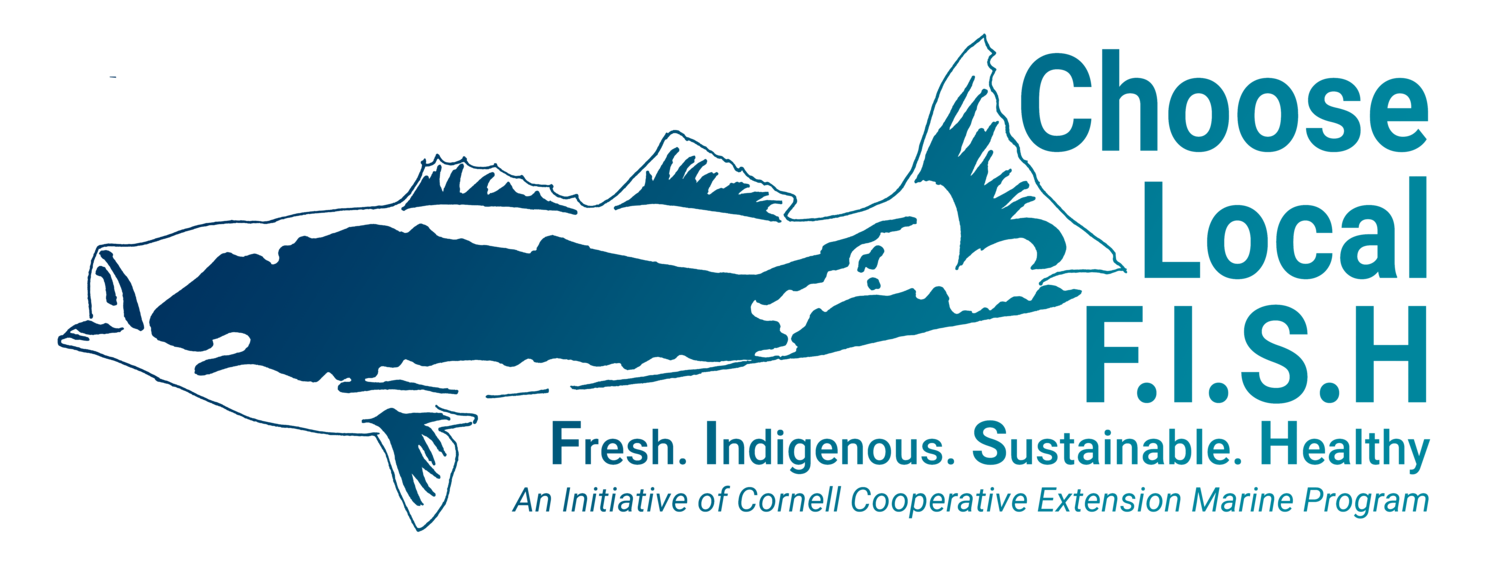Seafood Expo North America 2024 Publication
Cornell Cooperative Extension to Feature the “Golden Goose-fish” of the Northeast at Seafood Expo North America 2024
[American Goosefish products and recipes from Maine to New Jersey will be available for tastings throughout the event!]
[Boston, Massachusetts, January 8, 2024] – The American goosefish, better known as monkfish, has a mug only a mother could love, but an out-of-this-world taste worthy of five-star restaurants. With meat that’s mild-tasting and firm, it is often likened to lobster. Cornell Cooperative Extension of Suffolk County (CCE) is excited to announce that it has partnered with monkfish industry members from Maine to New Jersey to present this fantastic, local seafood at North America’s largest seafood event, Seafood Expo North America. The event will take place from March 10 - 12, 2024, in Boston, MA at the Boston Convention and Exhibition Center.
Monkfish is local to the Northeast US where the Expo will be taking place – the largest shares of the monkfish fishery in the United States is caught and processed in Massachusetts and in nearby states, like Rhode Island, Maine, and New Jersey. That means all dishes available for tasting at the CCE booth (#3314) in March will have been locally sourced from Northeast monkfish fishermen, and processed and developed by Northeast seafood companies.
“Monkfish is a very versatile fish. It can be prepared any way you want,” says Tara McClintock, Fisheries Department Manager at CCE.
That versatility in the kitchen will be highlighted by the various offerings CCE and its partners will have available to taste during the event. Monkfish Sliders from Tony’s Fresh Seafood of Rhode Island, and Monkfish Stew from Maine Coast Fishermen's Association, are just two of the offerings to be featured, both of which have already made waves in their respective states prior to the event. CCE will also share more ways to utilize monkfish with attendees, such as the preparation of Japanese ankimo using the monkfish’s liver, and scratch fish broth that utilizes the monkfish’s large head.
“The tail meat [of the monkfish] is just the start,” adds Kristin Gerbino, Fisheries Specialist with CCE. “The whole fish can be utilized to make one great meal after the other.”
“Getting the word out and doing these tasting events helps people try new things and realize all of the delicious, local options available to them,” McClintock adds. “When people eat local seafood, they support their local fishermen and businesses. Monkfish gives so much potential to do that right here in the Northeast.”
Cornell Cooperative Extension (CCE) is a non-profit community education agency established in 1917. We are affiliated with Cornell University as part of the national land grant university system started in 1862. CCE Suffolk is a subordinate governmental agency with an educational mission that operates under a form of organization and administration approved by Cornell University as agent for the State of New York. It is tax-exempt under section 501(c)(3) of the Internal Revenue Code. The association is part of the national cooperative extension system, an educational partnership between County, State, and Federal governments. As New York’s land grant university Cornell administers the system in this state. Each Cornell Cooperative Extension association is an independent employer that is governed by an elected Board of Directors with general oversight from Cornell. All associations work to meet the needs of the counties in which they are located as well as state and national goals.
The Marine Program - We are educators, researchers, specialists and support personnel who are dedicated to making Suffolk County a desirable place to live and work. Our researchers and educators inform Long Islanders how we can each do our part to safeguard our environment. Projects have been designed to bring back our once thriving eelgrass and shellfish populations, ensure our commercial fishing industry continues to thrive while limiting bycatch, provide public education about the environmental consequences of stormwater runoff, and introduce our young people to marine sciences and marine life on Long Island.


